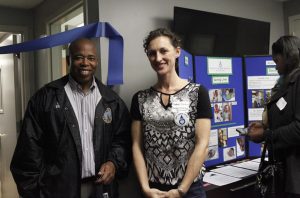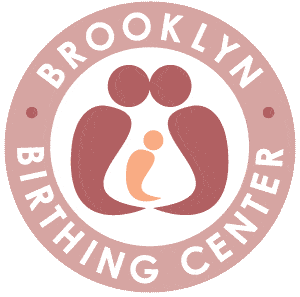Congratulations to the proud parents!
Author: Chanille Campbell
The COVID-19 discussion on June 4th has been cancelled. Please check back on our website for more details.
Dear All,
Leadership at BBC and Jazz are monitoring local and national updates daily to help inform our decision-making related to our patients, birth workers, as well as our committed staff.
We understand that we find ourselves in stressful times for which no one has been well prepared. BBC and Jazz are doing our best to address all COVID-19 questions that arise in a timely fashion, please check back regularly for updates. Any changes related to patient care will be communicated directly to our patients in a timely way.
COVID-19 interim health and safety protocols – updated October 28, 2020:
- We are offering in-person visits of all types with appropriate social distance measures in place:
-
- EVERY person entering the building for any reason will be screened for fever and COVID-19 symptoms, and is required to cover their mouth and nose with a covering or mask at all times
- Only ONE support person/family member allowed during visits
- Seating in the waiting room is limited, our staff is using alternate waiting spaces as needed to avoid crowding.
- You may wait in a vehicle and call the office when you arrive if you prefer, and our office staff will notify you when the midwife is ready to see you in the exam room.
-
- When you arrive for your appointment, please call us from your vehicle or when you are a few blocks away and a staff member will complete the check-in process over the phone.
- Testing: In accordance with NYC guidelines, we encourage frequent testing of all individuals and immediate testing in the case of possible exposure or symptoms.
-
- During pregnancy we will perform antibody testing upon entry to our care.
- At 38-39 weeks of pregnancy, we recommend testing of the mother and all members of the birth team, to be repeated every 5 days.
- Missing test results do not risk a person out of birth at the birth center, but recent negative test results are helpful, especially in cases of transfer to the hospital.
-
LABOR AND DELIVERY at the birth center
- TWO support people are permitted during labor, birth and postpartum. This may be a mix of partner, friend, relative, doula, photographer, etc of your choosing but the total number is TWO. Please arrange childcare for any siblings as we cannot allow siblings in addition to your two support people.
- Support people will not be allowed to come and go or “switch” with other individuals during labor/birth/postpartum.
- Birthing person and support people will be screened for temperature and COVID-19 symptoms upon arrival. Any person with fever or symptoms will not be allowed to enter.
- Masks must be worn at all times by all support people. Mothers may remove their mask if it interferes with their ability to labor effectively.
- Prior to arrival the midwife team will do TELEVISIT TRIAGE to determine the best time to arrive at the birth center.
- We recommend that people bring a fresh set of clothes to wear while at the center and pack their street clothes away.
- Anyone coming to the birth center must remain in the birth/labor room with the laboring person during the duration of labor, birth and postpartum.
POSTPARTUM
- Immediate postpartum: BBC/Jazz procedures and protocol as of now stays the same. Patients should expect to be at the center for 4 to 6 hours postpartum
- Postpartum/Newborn Visits:
- Newborns need screening at 24-48 hours after birth. If your selected pediatrician cannot perform these, the newborn will be brought back to the birth center for screening. Newborns will be seen separate from any other patients in the building.
- Mother will be seen in the office during the newborn screening visit or will have a telemedicine visit within 48hrs of birth if baby is being seen by pediatrician
- 4-6 week postpartum visits will occur in person
OTHER
- All classes and group tours are being held virtually. You may tour the birth center during a prenatal appointment if you are already in our care. No public in-person tours will occur at this time.
- We offer limited COVID-19 testing at our office but will refer you to an appropriate place based on your location as needed.
The staff of BBC/Jazz understand that these are unprecedented and stressful times. If you have any questions at all you are welcome to contact the office or you may email Dr. Veridiano, at info@brooklynbirthingcenter.com All information provided here is subject to change based on evolving local recommendations.
The health of our families is of utmost importance to the BBC/Jazz team.
We are committed to provide the most peaceful and positive birth experience possible under these difficult circumstances.
Thank you for trusting us with your health care.
Your BBC/Jazz health care team!
We are proud to report that Brooklyn Birthing Center is heavily featured in today’s The New York Times article, “Why New York Lags So Far Behind on Natural Childbirth.” This article explores the unique barriers faced by New York City families seeking a low-intervention birth experience.
According to Doctor Laura Zeidenstein, director of the graduate midwifery program at Columbia School of Nursing, “Midwifery is very hands-on and time-intensive. Midwives utilize technology judiciously. The cost is human time and that just can’t be billed for.” Medical interventions such as anesthesia, on the other hand, are well-compensated by insurance payers. Many birthing centers have folded due to economic pressures or bureaucratic red tape.
Despite these challenges, New York City parents-to-be continue to demand access to skilled midwifery care. As today’s New York Times article points out, Brooklyn Birthing Center addresses this demand as the only accredited freestanding birthing facility in metropolitan New York.
Induction at 39 weeks?
Many birth professionals and parents-to-be are curious about the results of the ARRIVE trial, a clinical study that compared elective induction of labor at 39 weeks to “expectant management” (or waiting for labor to begin naturally).
The study, entitled, “Labor Induction versus Expectant Management in Low-Risk Nulliparous Women,” was published in the New England Journal of Medicine in August of 2018. The authors concluded that induction of labor at 39 weeks resulted in “a significantly lower frequency of cesarean delivery.”
This conclusion has sparked controversy among health care providers. The American College of Nurse-Midwives cautions that the ARRIVE results cannot be generalized to all pregnant people in all health care settings, and argues that “there are a number of potentially negative implications when we disrupt the normal physiological processes of labor and birth.”
This infographic outlines some criticisms of the ARRIVE trial. In this video, Rebecca Dekker, RN, PhD, of Evidence-Based Birth discusses the ARRIVE trial in detail. If you are curious about the ARRIVE trial or the risks and benefits of elective induction, please talk with your healthcare provider.
We’re in-network with Aetna!
We are pleased to announce that we are now in-network with Aetna! We look forward to welcoming more Aetna members into our practice.
We understand that many prospective clients have questions about insurance coverage. We accept most major insurance plans, including Medicaid managed care plans. Although some plans will claim that we are “out of network,” we are often able to obtain gap exceptions. We also offer discounts and payment plans for self-pay clients.
We strive to minimize out-of-pocket costs and eliminate surprise bills. Toward this goal, we work with a professional billing service in order to verify benefits, estimate out-of-pocket costs, and negotiate gap exceptions. For more information, please check out the insurance section of our website or attend an orientation.
A new BBC mom graciously shared her birth story with us! Here’s Hannah’s story, in her own words:
In the weeks leading up to Max’s arrival I had been seeing an acupuncturist at Tigerlily Holistic, and at 40 weeks and 2 days they did an “induction treatment,” which is meant to really get things moving and open things up. The next morning at 7:15am my water broke! There was some light green meconium in the water, but Linda the midwife reassured me that it was light enough that it was safe to continue with the birth center birth. By 8:30am I was having contractions about every 6 minutes lasting 30 seconds. They felt like cramps, and I could still walk and talk through them. Then 20 minutes later they were feeling stronger, coming every 5 minutes.
By the time my husband arrived home at 9:30am the contractions were 4 minutes apart lasting 50 seconds. I spent some time laboring on a birth ball, and then lying in bed while listening to a hypnobirthing script I had practiced with while pregnant. The contractions were VERY strong at this point, I could no longer talk through them, but I was able to relax fully and deeply in between each one.
Next, around 12pm, I got in the shower and the contractions were coming so fast and strong I couldn’t talk at all! Markus announced they were about 2 minutes apart but I didn’t really hear him, I was too busy throwing up and breathing. I knew this was a sign that the baby was coming soon, but I wasn’t really thinking at this point just trying to keep breathing through each wave. We called Lily; it was definitely time to go. The birthing center was almost an hour away but I managed to get comfortable by kneeling on the floor and shoving my face and shoulders between two big pillows and pushing my back and butt against the back of the front seat. It felt good to push against something and riding with the bumps in the road helped distract me from the contractions that felt like they were on top of each other.
We got to the birth center around 1:30pm and I made it to ring the bell at the stoop just before I had to drop down to the ground for another contraction. Lily the midwife arrived at that moment, and we went inside. It was cool and empty, and as soon as I went into the bathroom and sat on the toilet I felt a big wonderful push sensation! It felt intense but was a relief after the contractions. Lily checked me out and I was 10 cm dilated- the baby was coming! Our doula Bonnie and the assistant Kathryn arrived and Markus parked the car and came back just in time to head back to the room with us. Looking back, I am so thankful that we didn’t have to go through triage, or deal with being hooked up to an IV or a monitor at this point. Instead, everyone followed my lead as I pushed kneeling by the bed, then I was offered a birthing ball. Lily began to fill the tub as I had asked, and the sound of running water was so nice. Markus and Bonnie alternated holding my hand with each push and putting a cold wash cloth on my neck which all felt amazing. The room was quiet except for the water running, my moans with each contraction, and the encouraging words of Bonnie, Markus, Lily, and Kathryn.
The pushing itself felt strong but wonderful, to be honest, and I was almost disappointed when each wave subsided. I heard Lily say she could see the baby’s head, and we all moved to a birth stool- I couldn’t imagine making it into the tub and I was feeling good where we were. Bonnie held a mirror under me so I could watch our progress, which I didn’t think I would want but it was awesome to have. The baby’s head was coming, two steps forward with each push and one step back with each rest, and Lily reassured me I was stretching nicely. When she announced the baby’s head would come with the next push I didn’t believe her. But out it came, along with one hand pressed against his face!! Lily calmly slipped the cord over his neck and I fell back against Markus to rest. I heard Lilly say our baby would be born with the next push. I still didn’t believe her, but sure enough his body slid right out at around 2:40pm.
In a quick fluid motion Lily lifted our baby to my chest and I said “It’s a boy!” We didn’t know the gender until that moment. Lily and Linda and Kathryn massaged my uterus and gave me a quick shot of Pitocin to help stop some extra blood flow and helped me rub our son down to get him breathing nicely. They moved me, Markus, and our baby to the bed as a unit and I sang to our baby while they helped deliver the placenta and stitched a small tear. They covered the lamp with some fabric so the light was nice and dim, and left us to cuddle and eat delivery sushi. I was so overwhelmed with gratitude, relief, and joy. Remembering Max’s birth I couldn’t and still cannot believe how lucky we are.
Our first minutes and hours with our son were spent in a magic bubble of calm, quiet, and safety. Words cannot express how grateful we are for the exceptional care we received and continue to be receiving from the Brooklyn Birthing Center.
Thank you for providing our community with an intervention-free, out of hospital option for our babies to be born into!
This spring, we devoted a lot of time to surveying our postpartum clients and reviewing their feedback. We were honored to receive some absolutely heartwarming testimonials— which we will be sharing on our blog over the next several weeks! BBC families: if you would like to post a testimonial or share your birth story, please contact rachelanne@brooklynbirthingcenter.com.
“I felt taken care of, especially since this is my first child. I didn’t feel alone and during the birth. When I wanted to quit and go to the hospital the midwives encouraged me to keep going. I’m happy I did.” -Natasha
“The staff was incredible. I never felt that I could not have the birth I wanted or that I was incapable. The midwives made me feel very empowered … Yuen, Nicole, and Charlotte were absolutely incredible during my labor and especially post labor. They were sympathetic to my being a first time mom and never made me fell like my pain was exaggerated but at the same time I felt strengthened by them and comforted.” -Brand New Mom
“Everyone was so kind and showed great care for me and my baby. More than I could expect. Thank you very much for a great experience! And special BIG thanks for Linda!” -Happy Mama
A huge thank you to the clients who shared their feedback. These stories sum up everything we love about the midwifery model of care! Stay tuned for more testimonials and birth stories!
Brooklyn Birthing Center, the only accredited freestanding birthing center in the New York City metro area, is now Brooklyn’s very first Baby-Friendly designated facility. The Baby-Friendly Hospital Initiative is a global project sponsored by the World Health Organization (WHO) and the United Nations Children’s Fund (UNICEF). The project aims to increase the rates of breastfeeding initiation, exclusivity, and duration worldwide.
In order to achieve Baby-Friendly designation, hospitals and birthing centers must provide extensive breastfeeding education and support, encourage skin-to-skin care and rooming-in while limiting the separation of mothers and newborns, and avoid promoting products that interfere with breastfeeding (such as infant formulas, bottles, and pacifiers). There are more than 20,000 designated Baby-Friendly hospitals and birthing centers across the globe, but less than 18% of US births occur in Baby-Friendly facilities. Brooklyn Birthing Center is one of just five Baby-Friendly designated birthing centers in the United States, and one of just two independent (as opposed to hospital-owned) Baby-Friendly birthing centers in the nation.

This prestigious designation marks the culmination of over three years of hard work by Brooklyn Birthing Center’s administration, midwives, nurses, and support staff. The birthing center applied to join the New York City Breastfeeding Hospital Collaborative in the spring of 2013, and spent 36 months developing an extensive lactation program with support from the Department of Health and Mental Hygiene. Baby-Friendly USA staffers conducted a detailed site assessment in June of 2016, and confirmed that Brooklyn Birthing Center meets all criteria for Baby-Friendly designation in July.
Brooklyn Birthing Center has promoted breastfeeding since its inception in 1999; however, the birthing center dramatically expanded its lactation program in order to comply with the Baby-Friendly Hospital Initiative’s 10 Steps to Successful Breastfeeding. New program components include a minimum of 25 hours of lactation education for all clinical staff members; a prenatal breastfeeding class for birthing center clients and for members of the general public; one-on-one consultations with an International Board Certified Lactation Consultant (IBCLC); and increased breastfeeding support during the first hours postpartum. Brooklyn Birthing Center is also a donation depot for Mother’s Milk Bank Northeast, a non-profit that supplies donor milk to several local hospital NICUs.

“Our clients are much better prepared to initiate breastfeeding as a result of these changes,” observed Linda Gaglioti, CNM, Brooklyn Birthing Center’s Director of Midwifery. “They ask about skin-to-skin care and point out early feeding cues in the delivery suites! We overhear them telling family members why they want to nurse according to their babies’ cues, rather than according to a schedule. The change is really remarkable.”
Jennifer Leopold, IBCLC, LMSW, Brooklyn Birthing Center’s Director of Lactation Services, commented, “I have been teaching breastfeeding to health care workers and pregnant women for many years. But since we began our Baby-Friendly journey, our clients have reported that they are much more confident in their ability to breastfeed.”

According to Rachel Anne Libon, Project Manager at Brooklyn Birthing Center, “Participating in the New York City Breastfeeding Hospital Collaborative was a wonderful experience. We received expert guidance from the Bureau of Maternal, Infant, and Reproductive Health, and we attended quarterly learning sessions with staff from other aspiring Baby-Friendly hospitals. It is encouraging to see more New York City hospitals adopting evidence-based practices to support breastfeeding families.”
At the time of this press release, New York City’s Baby-Friendly facilities include Harlem Hospital, NYU Langone Medical Center, Queens Hospital Center, Lincoln Medical & Mental Health Center, North Central Bronx Hospital, Richmond University Medical Center, Jacobi Medical Center, Bellevue Hospital Center, and Brooklyn Birthing Center. The last five facilities listed all earned their designation between April and July of 2016— a testament to the success of the City’s Breastfeeding Hospital Collaborative. Several other local hospitals are now participating in the Collaborative, indicating that Baby-Friendly practices are slowly becoming the standard of care in New York City. Brooklyn Birthing Center is the first facility in its borough to earn Baby-Friendly designation.
